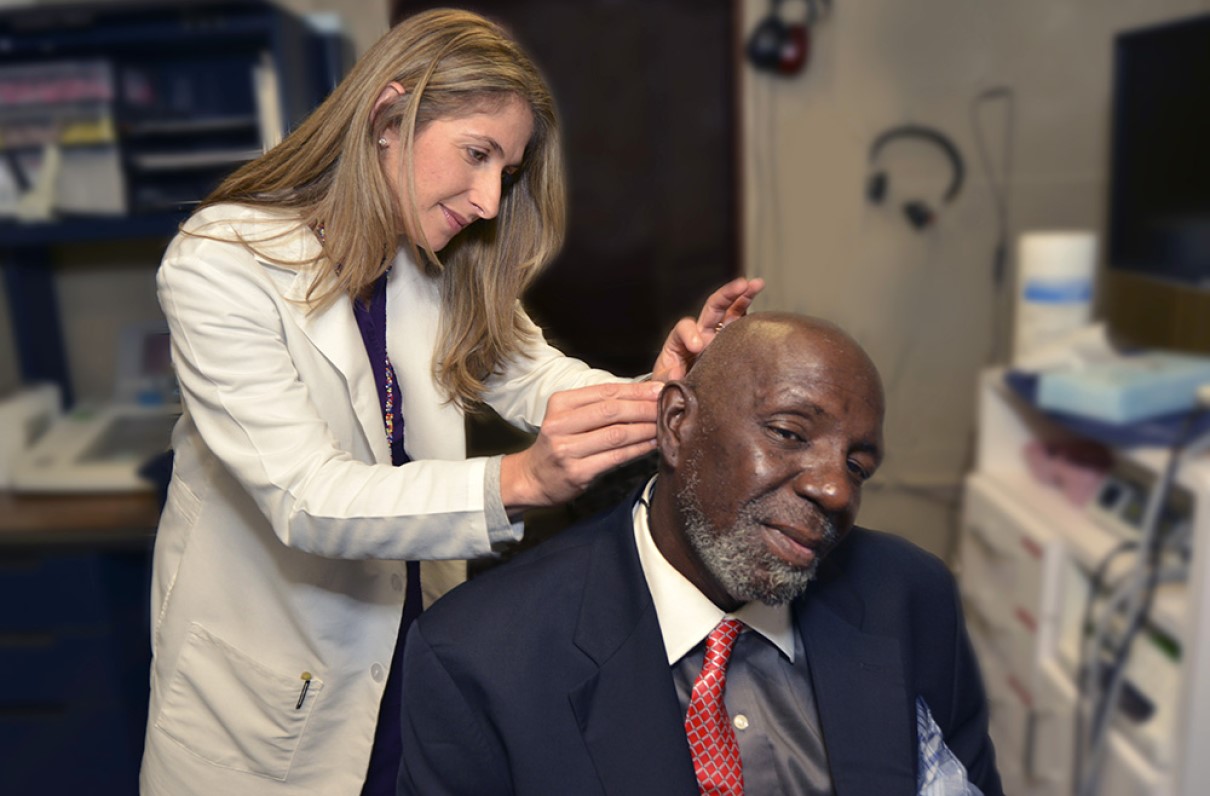Editor’s note: This article by Blake Stilwell originally appeared on Military.com, a leading source of news for the military and veteran community.
Tinnitus, that ringing, buzzing, hissing, whistling noise in your ear that only you seem to be able to hear, is a condition shared by 25 million American adults, according to the American Tinnitus Association. It's one of the most common health conditions in the country and the No. 1 disability in veterans.
A new way of treating the condition has shown a "clinically meaningful" change in people experiencing tinnitus, says a new study from New Zealand. Researchers created an app that combines current standard therapies and uses them to create an individually tailored plan to treat it, with results they claim in just 6-12 weeks.
The app is currently awaiting regulatory review and isn’t available to the public, but it shows remarkable promise.
Veterans suffer from tinnitus at a much higher rate than non-veterans, given the nature of their work and the equipment used in the line of duty. It is caused by loud noises, but can also appear as a result of inflammation, a side effect of medication or even a simple wax buildup in the ear.
[VA BY THE NUMBERS: A Big-Picture Look at Benefits]
There has never been a "cure" for the condition. While researchers know some of the causes of tinnitus, the perceived sound is a symptom generated by the brain, and no one is entirely sure why. Instead, medical experts have found success in multiple forms of treatment in the past, depending on the cause.
Patients with tinnitus caused by unilateral deafness, for example, can get a cochlear implant. Other, more generalized treatments include relaxation exercises, white noise and hearing aids. Researchers at the University of Auckland in New Zealand have found using a mixture of treatments gets more enhanced results, and they've compiled them into a smartphone app.
The "digital polytherapeutic" approach combined "goal-based counseling with personalized passive and active game-based sound therapy." This means users were paired with an audiologist who measured the user's experience with tinnitus on the Tinnitus Functional Index (TFI). This index is a standard scale from zero to 100, based on answers to at least 19 questions.
Any change on the scale greater than 13 points is considered a clinically significant difference in tinnitus experience.
[RELATED: 2023 TRICARE Costs Announced]
In a study for the medical journal Frontiers in Neurology, Auckland researchers pitted their app against White Noise Lite, a popular sound therapy application. They gathered 31 people suffering from chronic moderate or severe tinnitus to use the digital polytherapy app, while another 30 used White Noise Lite for 12 weeks.
White Noise Lite helped its users with a 10-point difference after six weeks and 10 points after 12 weeks, but the polytherapy app far outpaced it. Fifty-five percent of users showed clinically significant improvement after six weeks, and 65% after 12. The average improvement was 16.36 points on the TFI at week six and 17.83 after week 12.
"What this therapy does is essentially rewire the brain in a way that de-emphasizes the sound of the tinnitus to a background noise that has no meaning or relevance to the listener," Grant Searchfield, associate professor in audiology, told the science and technology lifestyle website New Atlas.
"Tinnitus is a symptom," Dr. Caitlin Barr, an audiologist who runs Tinnitus Australia, told New Atlas. "We can't always understand the causes clearly; there's so many gaps in our knowledge about tinnitus, so it's very difficult for researchers and sufferers alike to find a panacea. That's what's exciting about this research; a combination approach means that you're more likely to help more people."
[RELATED: More Health Care News From MOAA]
Researchers called the results of the experiment a "promising initial finding," but insist there's more work to be done. In the meantime, they are working on the regulatory issues and approval for the "polytherapeutic" app. They hope to have it clinically available within six months under the name "True Silence Therapeutics."
Read the full study at Frontiers in Neurology for more details.
Have More Questions About Your Health Care Benefit?
MOAA's TRICARE Guide answers some commonly asked questions.
